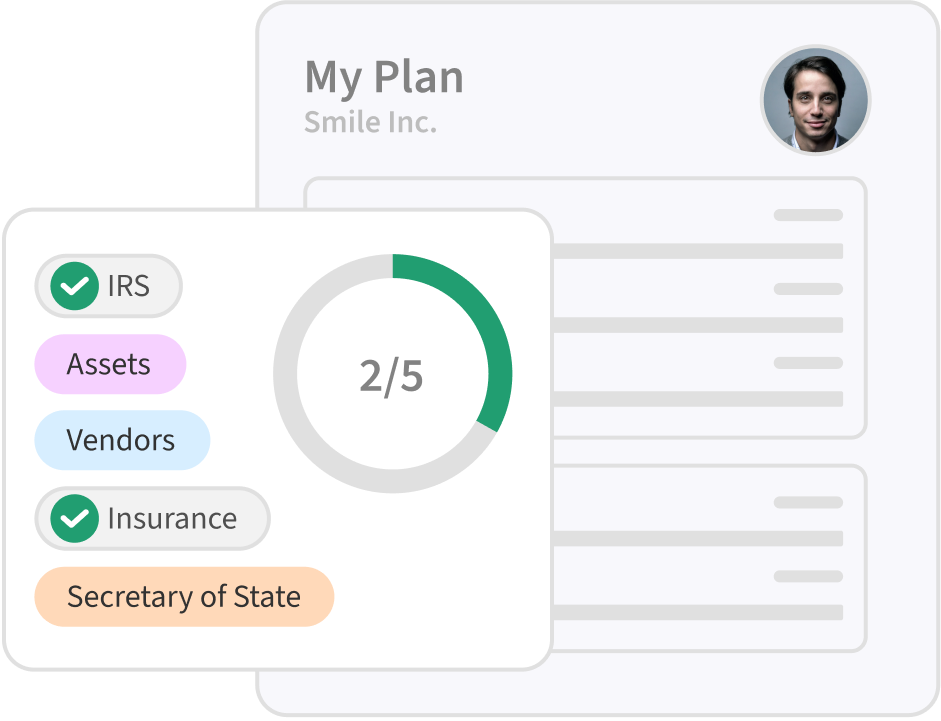Fierce global competition, the rise of automation, and increasing skepticism among investors are just a few reasons why tech startups continue to crumble recently.
How bad are things going to get? Some experts predict a tech startup culling similar to the 2008 economic crisis. To give you a clearer picture, this translates to nearly 230,000 tech sector employees who have lost their jobs since the start of 2023 by the time of this publication.
As a tech startup founder whose company is heading in a similar direction, you may be thinking about your employees, their jobs, and the uncertain future that lies ahead.
This blog serves as a guide on how to manage employee layoffs and severance during a tech startup shutdown. In it, you’ll find advice on how to lay off employees with dignity, assist them in their future endeavors, and make the shutdown process easy and risk-free.
Key Takeaways
Under certain federal and state laws, you may have to notify your employees 60 days before the company shutdown.
Handling layoffs the wrong way could invite legal backlash from former employees.
Employers are not obliged to provide severance except in some cases.
How to Lay Off Employees Legally
As a soon-to-shut-down tech startup, you must understand how the WARN Act works. Short for Worker Adjustment and Retraining Notification Act of 1988, this federal labor law protects employees by obliging companies with 100 or more employees to give a 60 calendar-day notification and prep time before mass layoffs or planned closings.
Note: Some states have their own ‘modified’ version of WARN (also called mini-WARN) that expand on federal law protections. These include Hawaii, Illinois, Maine, New Hampshire, New York, New Jersey, California, Tennessee, Wisconsin, Iowa, and the Virgin Islands.
You must issue salaries to all employees per usual during the notification period. Also, you are exempt from giving a 60-calendar day notice if:
You have less than 100 employees (not counting those who work less than 20 hours a week on average or those who have worked less than six months during the past year).
The layoffs directly result from natural disasters, e.g., earthquakes, storms, floods, or drought.
The employees were hired for projects/tasks and knew about the layoffs before starting work.
The criteria for laying off employees also includes not letting go of people based on color, race, religion, age (for ex. 40 years or older), sex, genetic information, and quality and quantity of work. But that discussion is relevant to companies that remain operational post-layoffs.
Leveraging Employment Practices Liability Insurance (EPLI)
Short for Employment Practices Liability Insurance, EPLI protects startups from potential lawsuits including harassment, discrimination, breach of contract, and wrongful termination. It’s particularly helpful for tech startups about to shut down, lay off their employees, and cannot bear the costs of defending against lawsuits.
EPLI also covers the cost of judgments or settlements awarded to the plaintiff. It offers strong financial protection during difficult times like shutting down your startup.
How to Lay Off Employees
Communication during a tech startup shutdown is paramount – it plays a significant role and determines stakeholder reaction. The investors are usually the first to know. Be open about the reasons and explain in detail how the fallout will impact their investment. Then, break the news to your employees.
Stick to the points mentioned in the following checklist for laying off employees to make the business closure process as smooth as possible.
Be Honest, Upfront, and Transparent
There are times when sugarcoating news is beneficial, now is not one of them. Be honest with your employees and explain why the company is shutting down, as well as its impact on everyone involved.
As the company founders/director, walking away is tempting, but you must deal with the fallout as best you can. You’ll most likely get asked difficult questions, which you should respond with complete transparency. Now is not the time to point fingers; take responsibility and reassure employees that the company will do its best to help secure work going forward.
Be Timely
Even if you don’t qualify for the WARN Act, you should still break the news as soon as possible to give ample time to prepare for what’s ahead. Another benefit of acting fast is the earlier employees know of the shutdown, the less likely tempers will flare.
That’s not to say the probability of employees expressing anger, frustration, and potentially flipping a desk on the way out reaches zero. But knowing that their next paycheck or two is secured makes the whole predicament a little less stressful.
Be Respectful
Remember, everyone’s going through a tough time. Be respectful and mindful of employees’ situations and offer them as much support as possible. Courtesy dictates you communicate the news in person and not over a Zoom/Skype call, or worse, an email.
Be Resourceful
A tech company shutdown can be due to many reasons. For example, the inability to differentiate itself in highly competitive landscapes can cause a startup to fail. Alternatively, it could be due to severe financial problems, like the inability to settle outstanding debts.
The type and degree of support you offer depends on your current business circumstances. However, even a tiny amount of support can go a long way in helping your employees navigate through these difficult times. Consider helping out your team by offering the following:
Job search assistance: Includes providing access to job boards and networking with potential employers.
Outplacement services: Includes career counseling, giving access to training material, and preparing employees for upcoming interviews.
Resume building: Assist employees with updating their LinkedIn profiles and highlighting their core skills and accomplishments.
Severance
There is no standard severance package for tech startups about to shut down operations, nor is there any such requirement in the Fair Labor Standards Act (FLSA). There are, however, two cases where you must pay severance. These include:
Some states require employers who are laying off a large number of workers to pay severance, but this seldom applies to tech startups (due to the small number of employees). If you still want to play it safe, contact your state labor department to learn more about your specific obligations.
If employees were led to believe that they would receive severance via a written contract, an oral promise, a history of your company paying severance to employees in similar positions, or a company policy explicitly stating employees would receive severance post-termination.
Still, many employers offer severance to soften the blow and reduce the likelihood of disgruntled employees taking the company to court.
The amount of severance depends on your company's financial situation, the employee’s length of service, and a few other factors.
If your company’s financial situation allows, consider offering a baseline severance package that includes:
One to two weeks of severance pay for each year of service (this is the minimum).
Continuation of health insurance coverage for some time.
Payment of accrued vacation time and unused sick leave.
References from the company.
If you cannot extend severance, try to maximize the non-financial support.
Frequently Asked Questions
Let’s wrap things up by answering common questions about tech startup employee layoff and severance.
Do Tech Companies Give Severance for Layoffs?
Generally speaking, small tech startups facing closure due to insurmountable debts or insufficient funds cannot provide severance. Companies that wrap up operations under more favorable terms may offer severance like recently shut-down Quibi did (one month of base salary plus one month of health insurance coverage). The answer depends on the size and status of the tech company.
Why Are Profitable Tech Companies Laying off Employees?
Many reasons are contributing to tech layoff. Two prominent ones include over-hiring during the pandemic to meet the temporary increase in consumer demand. The second is rising inflation due to the economic downturn.
What Not to Do During Layoffs?
Here’s a list of what NOT to do during a layoff:
Don’t blame others or point fingers.
Don’t make promises you can’t keep (rehiring, generous severance packages).
Don’t come across as rude or offensive.
Don’t discriminate (even an unintentional yet disproportionate layoff towards a certain class can land you in trouble).
Conclusion
Just like there’s a right way and wrong way of laying off employees, there’s also a right and wrong way of shutting down a startup. The wrong way can get startup founders into legal and financial trouble – the last thing a closing startup needs.
At SimpleClosure, we make the shutdown process for tech startups incredibly easy. With an abundance of experience and industry know-how, we make the shut-down process as smooth and simple as possible.
Get in touch today and let’s discuss shutting down your startup the right way.

